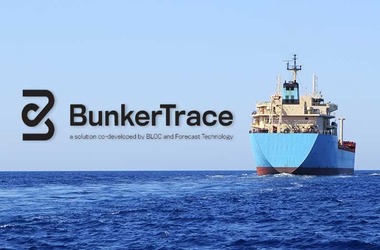
The latest solution integrates synthetic DNA markers and blockchain technology to track the fuel and enable identifying any changes made to the fuel. The company then documents all transactions in a blockchain based platform to handle risk for marine fuel by setting up an open custody chain.
BunkerTrace CEO Marc Johnson explained the issues faced by the market:
“We’re seeing fundamental changes to the dynamics of the bunkering market, which in turn creates uncertainty and risk: risk for owners, charterers, credit providers and financiers in the fuels they buy or fund; risk for insurers in establishing the risks they must manage; risk for operators and the fuels they burn; and for enforcers policing the fuels market. That’s why BunkerTrace exists.”
In early October Bunkertrace carried out its initial trial on the Boskalis-operated dredger Prins der Nederlanden, where the firm was able to identify a distinct DNA mark with an onboard analysis scenario, with the outcome loaded onto the blockchain.
Notably, blockchain technology is being deployed in hydrocarbons and supply chain industry to resolve various issues in an efficient and cost effective manner.
Last month, Indian automobile manufacturer Tata Motors unveiled plans to deploy blockchain solutions for the real-time tracking of fuel quality.
In the same month, a sister concern of China headquartered Chemical and oil company Sinochem Group, entered into negotiations with Royal Dutch Shell and Australian financial services firm Macquarie Group with regards to a blockchain powered platform for crude oil.
The platform is intended to remove inadequacies in trade and settlement, and also enhance lucidity and minimize the threat of fraud in the oil sector.
